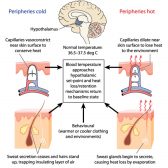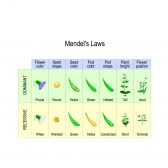Definition
noun, plural: chemoautotrophs
An organism (typically a bacterium or a protozoan) that obtains energy through chemosynthesis rather than by photosynthesis
Supplement
Autotrophs are the producers in a food chain, such as plants on land or algae in water. They are also referred to as the producers in the food chain and occupy the first trophic level. They are capable of manufacturing their own food by photosynthesis or by chemosynthesis. Thus, autotrophs may be photoautotrophs or chemoautotrophs. Those that synthesize food through the use of chemical energy are referred to as chemoautotrophs.
Chemoautotrophs are those that make their own food by chemosynthesis. Chemosynthesis is a process by which some organisms, such as certain bacteria, use chemical energy to produce carbohydrates. They are capable of utilizing inorganic compounds such as hydrogen sulfide, sulfur, ammonium, and ferrous iron as reducing agents, and synthesize organic compounds from carbon dioxide. Chemoautotrophs are found in hostile habitats such as deep sea vents and where light cannot easily penetrate through. They include the methanogens, halophiles, nitrifiers, thermoacidophiles, sulfur oxidizers, etc.
Word origin: chemo– (chemical) + auto (self) + troph (nourishment)
See also:
Related form(s):







